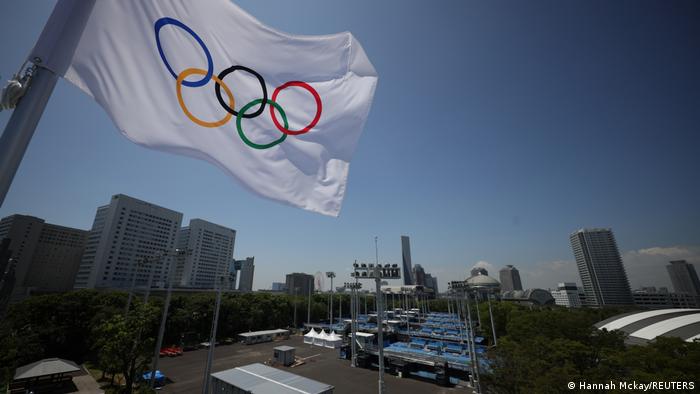
Berlin: At the start of the IOC session in Tokyo Tuesday, an amended motto, "Faster, Higher, Stronger - Together" was announced by President Thomas Bach to "give humanity faith in the future."
Olympic officials said the revised motto shows the need for solidarity in the tough times brought on by the pandemic.
"We have to adapt the motto to our times," Bach said.
He added, "This is a milestone in our development and sends a clear signal. We want to put special focus on solidarity."
The original motto, "Faster, Higher, Stronger," or in Latin, "Citius, Altius, Fortius," was adopted by Pierre De Coubertin, considered the founder of the modern Olympics, in the 19th century. The new version in Latin reads, "Citius, Altius, Fortius – Communiter".
'Faith in the future' in a time of COVID-19
Bach for the first time acknowledged Olympic organizers had doubts as to whether the games could go forward in pandemic times but insisted the games were a beacon of hope in tough times.
"In order to arrive at this day today, we had to give confidence. We had to show a way out of this crisis. We had to provide stability. We had to build trust. We had to give hope," Bach said.
With the Tokyo Olympics just three days from opening, scores of cases of COVID-19 have been confirmed in the Olympic village, including among athletes.
Nonetheless, Bach said the athletes are set "to shine and inspire the world."
Japanese politicians support hopeful message
While Japanese Prime Minister Yoshihide Suga has been criticized for his COVID-19 policies and Tokyo remains under a state of emergency with rising case counts, Suga nonetheless opened the IOC session declaring, "after a long tunnel an exit is now in our sight."
Suga promised to protect the health and safety of the Japanese people. He said the Olympic spirit cannot be "hampered or reduced" by the pandemic.
Public health experts less hopeful
Kenji Shibuya, a prominent public health expert in Japan and the former director of the Institute for Population Health at King's College London, disputes the claims being made by politicians and Olympic officials.
Shibuya believes there is a risk to the general public in holding the games when there is insufficient testing taking place to enter Japan. The impossibility of controlling everyone's movements means the highly resistant Delta variant could spread fast.
"It's obvious that the bubble system is kind of broken," Shibuya told Reuters, adding, "My biggest concern is, of course, there will be a cluster of infections in the village or some of the accommodation, and interaction with local people."
In April, he co-authored an article for the British Medical Journal that said the Olympics should be "reconsidered". His view is shared by the majority of the Japanese public who are opposed to hosting the games amidst a worldwide pandemic.
Shibuya said the statements of political leaders and IOC officials are unproductive, as people can see that the reality of conditions is "totally opposite."